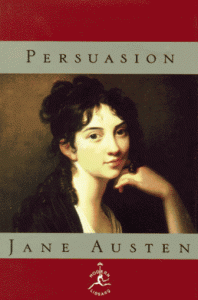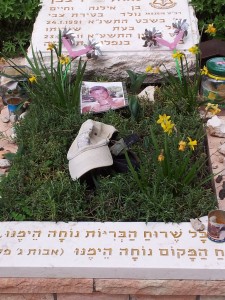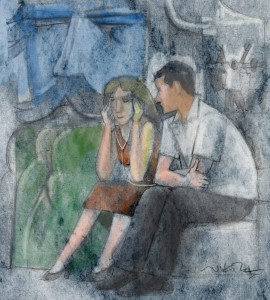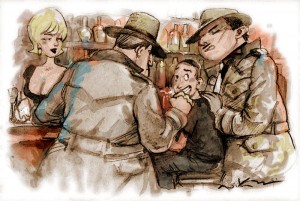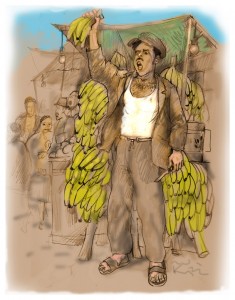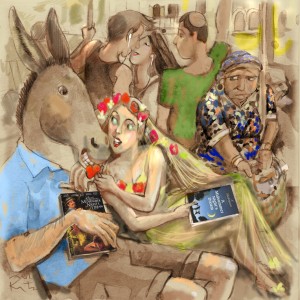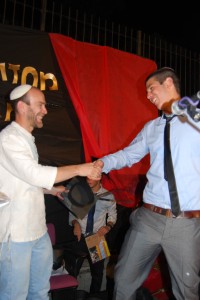Haim Watzman
Is there a dictionary of smiles? I need one. I know what my own smiles mean. I think of my face as a simple platform. It exhibits a range of smiles that clearly convey a certain range of messages, from “that’s nice” to “go away.” The male face has evolved so many layers of meaning that you need to be a master linguist to comprehend them all. That I am not.
One example is the smile on this boy sitting in the seat across from me on Atlanta’s MARTA train. We both got on at the airport. I wheeled in the small carry-on that I’d taken on a two-day business trip, a matter regarding software validation that I won’t bore you with. I have a meeting at the office at eleven and I should get in just in time to run to the bathroom beforehand. In a rush, and with this annoying and ugly eye patch, I am unsteady on my feet and stumbled as I board the train. Someone catches my elbow from behind, and I mutter an automatic but not very nice thank you.

illustration by Pepe Fainberg
I take the aisle facing seat by the door, stowing the wheelie bag underneath. Extracting my Kindle from my purse, I intend to get back into my book club’s latest selection, Homer’s Odyssey. It’s one of those books that must have become a classic simply because back then there was nothing else around to read.
It’s only then that I glace at the seat across from me and see the guy who, apparently, is the one who steadied me. Dressed in a dirty ski jacket with a wool hat sticking out of one pocket, he’s unshouldering a large backpack. He has tousled light brown hair and a beard maybe a week old of a slightly lighter color. He peers at the map behind the side-facing seat next to the door, sits down, and smiles at me.
